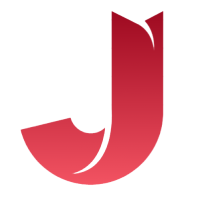
After the joy of getting your provide on a brand new dwelling accepted comes the work wanted to shut on it—and all the brand new terminology you must be taught. Even in the event you’re greater than a bit drained from all that looking out, you’ll must get extra executed to ensure every part goes easily at that all-important closing. Getting money to shut is a key activity.
What’s money to shut?
Money to shut covers the prices and costs you want to pay if you buy a house, a lot of that are a part of taking out a mortgage. Extra particularly, it’s the quantity you will have to pay on closing day to formally finalize your own home buy. Whereas the phrases discuss with money, you in all probability received’t be toting precise briefcases of foreign money to your closing—that wouldn’t be secure, for one. Cost strategies might fluctuate, and we’ll cowl these.
Money to shut prices
The precise quantity and kinds of prices you’ll must pay at your own home closing might differ, however they’re mostly damaged down into the next classes:
- Down fee: Your down fee is the quantity you agreed to pay out of pocket, with the mortgage masking the remainder of the acquisition value. It’s in all probability the biggest single chunk of your money to shut. The precise quantity—and proportion of the acquisition value—may also rely upon the kind of dwelling mortgage you’ve, together with whether or not it’s backed by an company such because the FHA, VA, or USDA.
- Pay as you go prices: These kind of charges will fluctuate relying in your property and placement. They’ll embody property taxes, owners insurance coverage, and any owners affiliation (HOA) dues. Usually, your mortgage lender will maintain them in an escrow account till the relevant funds are due.
- Earnest cash: This quantity is what you paid upfront as a deposit to point out the vendor you had been severe about shopping for the house. Held in an escrow account, the quantity you paid then can be credited in direction of your closing.
- Mortgage factors: Generally known as low cost factors, these are non-obligatory charges you pay to your own home mortgage issuer in change for a decrease rate of interest.
- Credit: Credit are an choice you possibly can take so a lender will decrease what’s owed at closing. In change, you will more than likely pay a better mortgage rate of interest. They perform because the inverse of low cost factors. One other approach to think about that is that you just’re financing a portion of your money to shut together with your mortgage: You’ll pay extra later for right this moment’s financial savings.
- Closing prices: These prices are charges which can be related to taking out a mortgage, corresponding to origination charges, title insurance coverage, lawyer charges, and personal mortgage insurance coverage (PMI).
Closing prices vs. money to shut: what’s the distinction?
Each of those phrases are used to discuss with the amount of cash you will must have available when closing on your own home, however one is a subset of the opposite. Closing prices particularly discuss with the quantity you’ll want if you shut on your own home mortgage.
Among the many charges that compose closing prices:
- Appraisal charges
- Origination charges
- Lawyer charges
- Title insurance coverage
- Mortgage insurance coverage (for some government-backed loans)
- Non-public mortgage insurance coverage (for some typical dwelling loans)
- Charges for government-backed loans
Money to shut, then again, refers to all the cash (together with closing prices) you will have at closing with a view to buy the house. This will embody having a owners insurance coverage coverage in impact on or earlier than closing day and the massive quantity you’re more likely to want for a down fee.
How money to shut is calculated
You’ll be able to decide what your money to shut quantity can be by any of the prices you’ve got agreed to, corresponding to your down fee and any ones out of your mortgage lender listed in your mortgage estimate. Don’t overlook to think about different closing prices corresponding to mortgage factors, estimates of property taxes, and owners insurance coverage—plus something that can cut back the quantity you’ll must pay, corresponding to lender credit and your earnest cash.
Which types of fee can I take advantage of for money to shut?
Strategies of fee will fluctuate primarily based in your mortgage lender, title firm, and even the place you reside. Normally, you possibly can solely pay by a wire switch or licensed examine. On uncommon events, you could possibly use a cashier’s examine or debit card for some prices.
The place can you discover the quantity owed at closing?
You may also discover out the precise quantity you want as money to shut in your closing disclosure, a doc your mortgage lender is legally required to offer. It should itemize the prices you will have to pay, together with the entire quantity owed at closing. You may also speak to your actual property agent or lawyer that can assist you estimate prices so that you’re ready as forward of time as potential.
The right way to begin making ready early
Ensuring you’ve the correct quantity of money throughout closing is essential to finalizing the acquisition. The quantity could appear massive, so it’s finest to start out setting apart cash as quickly as potential in preparation.
Listed here are a number of methods you can begin to finances for the quantity you’ll want:
- Arrange computerized funds: Contemplate opening a separate financial savings account like CIT Accelerated Excessive Yield Financial savings and making common deposits into it. To find out how a lot you must allocate, take the entire quantity you assume you’ll want and divide it by the quantity of months or weeks till closing. For example, in the event you want $30,000 in seven months, then you must save $4286 every month.
- See the place you possibly can reduce: Take a look at what you’re spending now—is there a solution to spend much less, even on requirements? Contemplate quickly foregoing some variable bills, corresponding to consuming out much less or holding off on making additional funds in direction of your different debt till you’ve sufficient saved up. To see what your present spending appears like that can assist you reduce, contemplate apps like Monarch Cash and Simplifi by Quicken (from Quicken).
|
$14.99 a month or $99 a yr |
|
|
LIMITED TIME 3-month free trial to current Mint customers |
Free 30-day trial and 50% off your first yr with the code MINT50 |
|
Begins with monitoring bills to construct a personalised finances primarily based in your preferences, like zero-based budgeting or 50/30/20 |
Funds creation with or and not using a accomplice (you possibly can even invite your monetary advisor) and in addition monitor investments |
| View Supply | View Supply |
- Put aside occasional windfalls: Are you anticipating a tax refund? Or are your dad and mom supplying you with some cash? If a possibility presents itself, stash it away—don’t blow it.
- Contemplate taking a second or aspect job: If chopping again bills isn’t sufficient, taking up further work quickly may also help. You’ll want to think about the kinds of jobs out there on the working hours you possibly can spare.
What’s the closing disclosure and the place to seek out it?
A closing disclosure is a five-page doc outlining the prices you will must pay at closing and your projected month-to-month funds to the lender. You’ll obtain this doc at the least three enterprise days earlier than you shut on your own home. That approach, you should have time to look over the prices and attain out to your lender with any questions. Make sure to evaluation it together with your actual property agent and/or lawyer to ensure that every part is so as.
Conclusion
Understanding how a lot money to shut you want will be certain that your own home shopping for course of will go easily. Although you’ll have an estimate and finances accordingly, put together for the quantity fluctuating. You’ll know precisely how a lot you’ll owe when you obtain the closing disclosure out of your lender.
Incessantly requested questions (FAQs)
What does it imply if money to shut is unfavourable?
If a money to shut is unfavourable it means your lender credit are greater than your mortgage prices—and also you’re truly going to depart the closing with cash as a consequence of you. Don’t overlook, nonetheless, that you’re paying for this with a better rate of interest. You could be reimbursed for this quantity in the event you had been the one who initially paid it out of pocket.
Why does my money to shut maintain going up?
The quantity you owe at closing may very well be greater than you anticipated. Among the many causes:
- Your down fee needing to be greater,
- Owners insurance coverage premiums costing greater than initially estimated
- A rise in property taxes.
Why is my money to shut decrease than my closing prices?
Your money to shut contains any credit or refunds for charges which can be included in your closing. Within the very uncommon scenario that these credit more-than-offset your closing prices, the money to shut could be decrease than these prices.
The knowledge introduced right here is created independently from the TIME editorial employees. To be taught extra, see our About web page.
